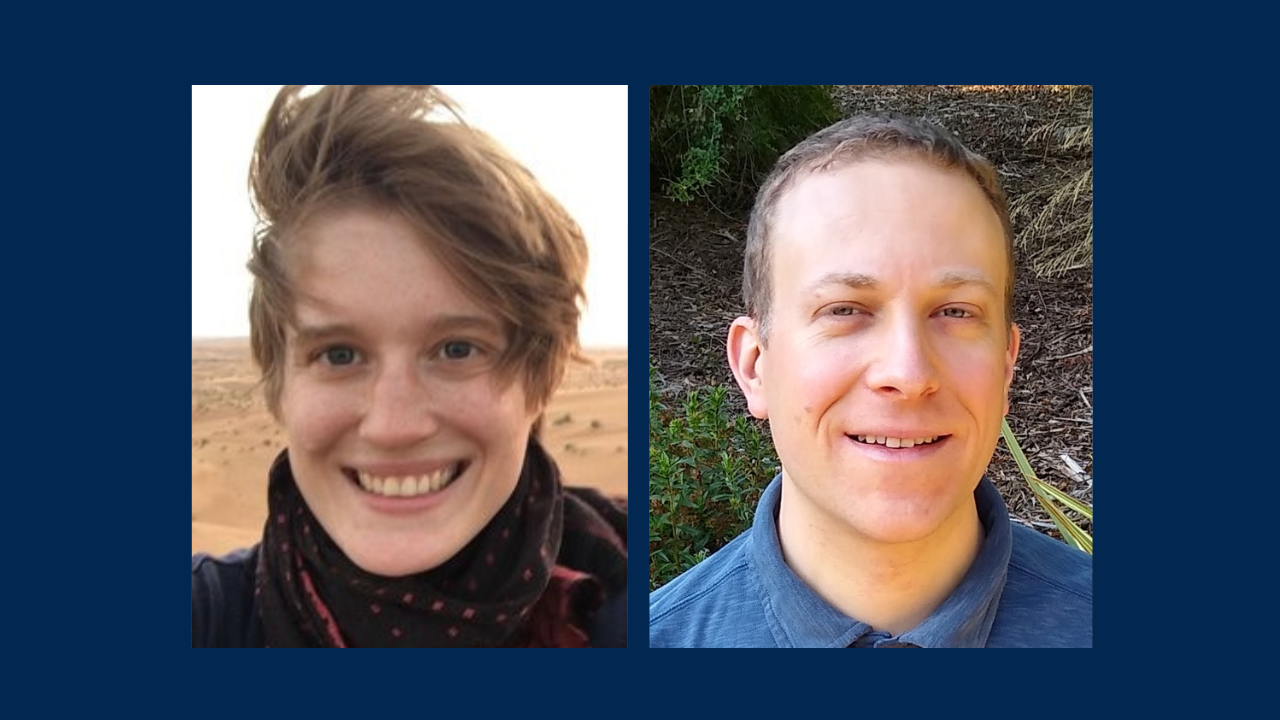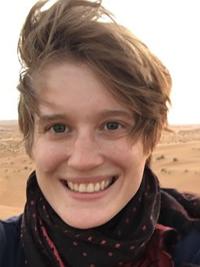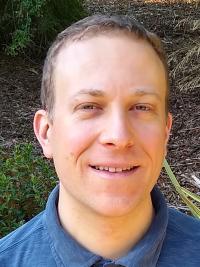
UC Davis Mathematician and Physicist Receive Over $1M in NSF CAREER Grants
A UC Davis theoretical physicist studying the quantum nature of matter and a mathematician investigating the complexity of large datasets are the recipients of grants totaling more than $1.2 million from the National Science Foundation’s Faculty Early Career Development Program (CAREER).
The CAREER program supports early-career faculty who have the potential to serve as academic role models in research and education. Alex Thomson, assistant professor of physics, and Alexander Wein, assistant professor of math, received $610,000 and $632,763 for their research projects, respectively.
Learn more about Thomson’s and Wein’s projects below.

Alex Thomson
Assistant Professor, Department of Physics and Astronomy
Thomson will use her CAREER grant to support research into understanding the quantum phases of electrons in two-dimensional materials, with focuses on superconductivity and disorder in 2D graphene structures.
“Although certain phases of matter are well-described in colloquial terms, for example liquid or solids, the fundamentally quantum nature of the universe supports a multitude of states beyond those we see in everyday life,” Thomson said. “The quantum nature of these phases often results in incredible properties: for instance, a superconducting system conducts without resistance, allowing electricity to be transported over arbitrary distances without energy loss.”
Thomson, who joined the UC Davis faculty in 2021, received the grant after her first attempt applying to the prestigious awards program. Faculty are allowed to submit applications for a CAREER grant up to three times.
“I was really happy,” said Thomson, who initially used the opportunity as a practice run for grant writing and didn’t expect to receive the award. “The application was pretty difficult to write and it took up a lot of my time. I didn’t really expect to get it this time.”
In addition to her research, Thomson will use the NSF grant to promote physics education to underrepresented groups both before and during undergraduate education. According to the American Physical Society, underrepresented minorities account for only roughly 15% of bachelor’s degrees.
“While the underrepresentation of Black and Latinx individuals is not unique to physics, we lag behind other areas of study and have the capacity to improve,” Thomson said. “These figures are not only troubling because of the entrenched problems they suggest, but they also point to a large pool of untapped talent.”
For part of that work, Thomson plans to build on an existing program called the National Nuclear Security Administration Science Apprenticeship Program at UC Davis, which was launched by Distinguished Professor of Physics Richard Scalettar in partnership with River City High School in West Sacramento, California. Each year, the program sends 12 high school students to UC Davis to learn about modern physics research topics.

Alexander Wein
Assistant Professor, Department of Mathematics
Wein will use his CAREER grant to support research into efficiently wrangling and untangling large, complex datasets, which are ubiquitous in the modern world and hold great potential for knowledge.
“They also pose a challenge,” said Wein. “How do we best extract the information we desire in the overwhelming presence of random noise? Whether it be the structure of a molecule, the mutation responsible for a disease, the community structure in a network or something else.”
Algorithms allow researchers to sift through such noisy, complex datasets. However, they must be both computationally and statistically efficient, being practical both in runtime and comprehensive in their analyses. Accomplishing both goals can be difficult since there can be a dizzying number of datapoints in a single dataset. Wein’s research aims to help researchers advance and optimize algorithm design.
“This will deepen our fundamental understanding of how to develop the best possible methods for large-scale statistical interference, taking both statistical and computational considerations into account,” Wein said.
In addition to this research, the grant will also support Wein’s work further establishing the data science major at the College of Letters and Science. The program started accepting students in fall 2022.
“Part of my plan for the next five years involves teaching and developing materials for courses related to the mathematical foundations of data science,” Wein said. “The task of extracting information from noisy data is becoming increasingly central to the modern world. In order to be sure we are drawing the most accurate possible conclusions from the information we have, we need a variety of mathematical tools coming from fields such as probability theory, linear algebra and optimization. I aim to help equip the next generation of students with these tools.”
“I am very grateful and excited to receive this funding, which will support my work for the next five years,” Wein added. “It was a lot of work to apply for this grant, and I was lucky to have some great mentors who guided me through it.”
